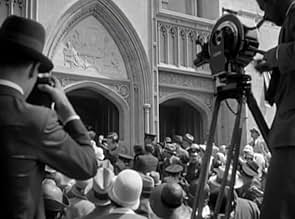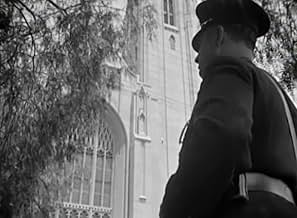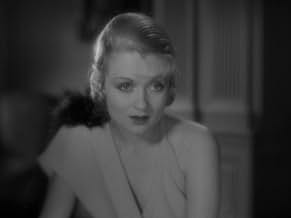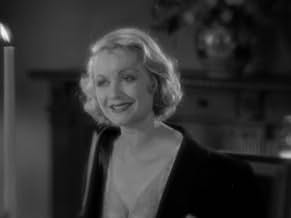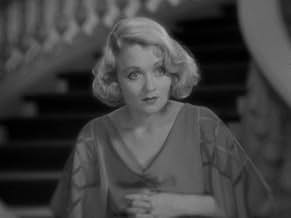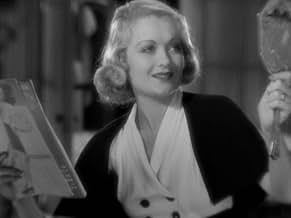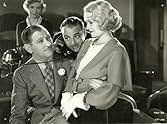VALUTAZIONE IMDb
7,0/10
2852
LA TUA VALUTAZIONE
La carriera di una cameriera sembra prendere il via quando incontra un'amabile e ubriacone regista di Hollywood.La carriera di una cameriera sembra prendere il via quando incontra un'amabile e ubriacone regista di Hollywood.La carriera di una cameriera sembra prendere il via quando incontra un'amabile e ubriacone regista di Hollywood.
- Regia
- Sceneggiatura
- Star
- Candidato a 1 Oscar
- 3 vittorie e 1 candidatura in totale
George Reed
- Undetermined Secondary Role
- (scene tagliate)
Alice Adair
- Undetermined Secondary Role
- (non citato nei titoli originali)
Eddie 'Rochester' Anderson
- James - Max's Butler
- (non citato nei titoli originali)
Sam Armstrong
- Undetermined Secondary Role
- (non citato nei titoli originali)
Zeena Baer
- Secretary to Julius Saxe
- (non citato nei titoli originali)
King Baggot
- Department Head
- (non citato nei titoli originali)
Gerald Barry
- John Reed - an Actor
- (non citato nei titoli originali)
Floyd Bell
- Undetermined Secondary Role
- (non citato nei titoli originali)
Veda Buckland
- Nana - Jackie's Nursemaid
- (non citato nei titoli originali)
Nicholas Caruso
- Chef at Brown Derby
- (non citato nei titoli originali)
Lita Chevret
- Actress Filming on Movie Set
- (non citato nei titoli originali)
Recensioni in evidenza
This early effort by director George Cukor had such resonance that it was remade three times as A STAR IS BORN, so it lives on to satisfy the curiosity of those who admire one or more of the later productions. What holds it up after all these years are a strong and realistic performance by Lowell Sherman as a successful Hollywood film director whose alcoholism is destroying his career, decent and sometimes brilliant work by ever-stylish Constance Bennett as the ambitious waitress who becomes an overnight star, beautiful and poetic montages by Slavko Vorkapich, a generally witty and clever script by a team of about eight writers including Adela Rogers St. John and Gene Fowler, and some beautifully directed intimate scenes including the opening in which Bennett dresses for work, copying the beauty tips advertised in the fan magazine she is reading. Highlights: the screen test in which Bennett repeatedly fails to gracefully descend a staircase, deliver one line and then react to the sight of a dead body outside camera range; the filming of a nightclub scene in which Bennett delivers a love song in French (a la Dietrich in MOROCCO) as she strolls among the seated patrons. When you think about it, Bennett is really too sophisticated and worldly for this part, which is why it worked much better for the homespun Janet Gaynor five years later. It really doesn't make sense that a lady who can handle herself with complete ease after being dragged to a movie premiere and unexpectedly shoved in front of a microphone would suddenly turn into a klutz in front of a movie camera in a studio screen test. At one point Bennett is seen to converse in flawless, fluent French and we can only wonder how a lowly waitress with naïve dreams of movie stardom ever got that kind of linguistic education. The only explanation could be that the casting of Bennett required compromises. In any case, her natural charm carries her through.
At times the story drags. Neil Hamilton as the stuffed shirt husband adds to the dead weight. The sound quality in the outdoor scenes is weak and tinny. Gregory Ratoff as a studio chieftain has fun but his accent is a bit too thick given the limitations of the recording techniques of the time. Louise Beavers, as always, enlivens her small role as Bennett's maid.
At times the story drags. Neil Hamilton as the stuffed shirt husband adds to the dead weight. The sound quality in the outdoor scenes is weak and tinny. Gregory Ratoff as a studio chieftain has fun but his accent is a bit too thick given the limitations of the recording techniques of the time. Louise Beavers, as always, enlivens her small role as Bennett's maid.
One of George Cukor's better films, featuring Lowell Sherman, as an alcoholic director, Gregory Ratoff as a Sam Goldwyn like producer, and Constance Bennett playing the starstruck waitress at the Brown Derby. The film also includes Eddie "Rochester" Anderson as Sherman's sly butler. An early RKO film, it shows the working of the studio, somewhat satirically but lovingly. Also, a world premiere at Grauman's Chinese Theater. It should be better known .
Alcoholic director Max Carey (Lowell Sherman) discovers waitress Mary Evans (Constance Bennett). She becomes a big star and marries handsome Lonny Borden (Neil Hamilton)...but Carey's alcoholism starts to kill him and Lonny can't deal with his wife's stardom....
Very predictable but good. This movie moves VERY quickly; is well-directed by George Cukor; has some sharp pre-Code dialogue and has a good script that gives an interesting look at Hollywood in the 1930s. The church sequence especially is fascinating. It gets a little overly silly at the end but it still works.
Bennett is just great--beautiful and believable; Sherman was good also; Hamilton is just so-so but he's unbelievably handsome so that helps. Gregory Ratoff also gets some laughs as a VERY excitable studio head.
This was (pretty obviously) the inspiration for the later "A Star Is Born" movies but stands on its own merit. I give it an 8.
Very predictable but good. This movie moves VERY quickly; is well-directed by George Cukor; has some sharp pre-Code dialogue and has a good script that gives an interesting look at Hollywood in the 1930s. The church sequence especially is fascinating. It gets a little overly silly at the end but it still works.
Bennett is just great--beautiful and believable; Sherman was good also; Hamilton is just so-so but he's unbelievably handsome so that helps. Gregory Ratoff also gets some laughs as a VERY excitable studio head.
This was (pretty obviously) the inspiration for the later "A Star Is Born" movies but stands on its own merit. I give it an 8.
What that lady needed was a good script and a fine director. She had both in "Our Betters." And she had it here. And this one will break your heart.
The on-the-set ambiance is very plausible. Lowell Sherman is excellent as the tippling director who discovers waitress Bennett and becomes a heavier drinker. Gregory Ratoff is superb as the initially brusque but increasingly sympathetic producer Saxe.
Conusance Bennett is likable as the ambitious waitress. She gets us to smile as she starts out as a crummy actress but works hard at it. And she is directed to a superb performance when things for Sherman, her, and her husband Neil Hamilton get tough.
The on-the-set ambiance is very plausible. Lowell Sherman is excellent as the tippling director who discovers waitress Bennett and becomes a heavier drinker. Gregory Ratoff is superb as the initially brusque but increasingly sympathetic producer Saxe.
Conusance Bennett is likable as the ambitious waitress. She gets us to smile as she starts out as a crummy actress but works hard at it. And she is directed to a superb performance when things for Sherman, her, and her husband Neil Hamilton get tough.
"What Price Hollywood?" is one of my favorite films of the 1930s. With loads of drama, glamour to spare, and some romance too, this movie is one of the best behind-the-scenes looks at the old Hollywood studio system that was ever made. Constance Bennett, looking her radiant best, plays the lead role with finesse. Lowell Sherman also turns in a powerful performance as a washed-up director. This movie was the basis for "A Star is Born." All in all, one great film.
Lo sapevi?
- QuizThis film bears such a striking resemblance to È nata una stella (1937) that it is often considered "the original version" of that often remade classic. In fact, David O. Selznick, who produced both this film and Star is Born, was threatened with a lawsuit by this film's writers, claiming plagiarism.
- BlooperWhen the screen shows a newspaper gossip column, part of an item relating a joke about a Jewish boy and a bird can be seen. Several months later, another gossip column shows the identical item.
- Curiosità sui creditiThere is a "by" credit to Gene Fowler and Rowland Brown after the title shows, but there is also a "screenplay by" credit to Jane Murfin and Ben Markson, without leaving any clear explanation or context as to what "by" actually means. But the reality was that Fowler and Brown wrote the real screenplay, with Murfin and Markson providing the continuity.
- ConnessioniFeatured in David O. Selznick: 'Your New Producer' (1935)
- Colonne sonoreThree Little Words
(1930) (uncredited)
Music by Harry Ruby
Part of a medley played during the opening credits
I più visti
Accedi per valutare e creare un elenco di titoli salvati per ottenere consigli personalizzati
- How long is What Price Hollywood??Powered by Alexa
Dettagli
- Data di uscita
- Paese di origine
- Lingue
- Celebre anche come
- What Price Hollywood?
- Luoghi delle riprese
- Azienda produttrice
- Vedi altri crediti dell’azienda su IMDbPro
Botteghino
- Budget
- 411.676 USD (previsto)
- Tempo di esecuzione1 ora 28 minuti
- Colore
- Proporzioni
- 1.37 : 1
Contribuisci a questa pagina
Suggerisci una modifica o aggiungi i contenuti mancanti

Divario superiore
By what name was A che prezzo Hollywood? (1932) officially released in India in English?
Rispondi
